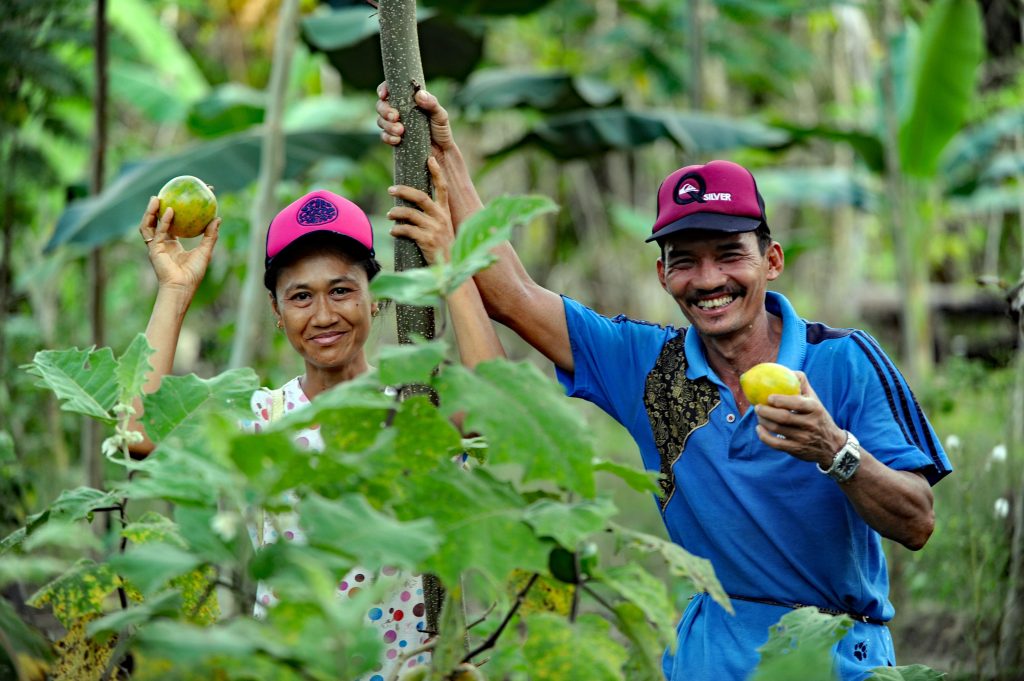The project aims to enable local small farmers to sustainably improve their livelihoods by cultivating fruit and vegetables on degraded soil for their own consumption and for sale. The economic and ecological sustainability of the project results are the core of the project. Through agricultural production on previously unused, degraded soil and practical training, the self-help skills and self-sufficiency of the families are strengthened. The commitment of the lead farmers strengthens the solidarity among the farmers. The Borneo Institute and the Lead Farmers will provide the farmers with advice beyond the project period.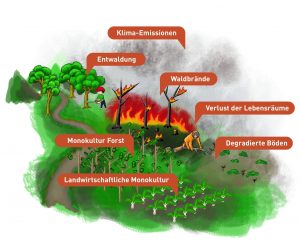 The project is a follow-up project based on the successful activities in the field of catch crops and organic composting, which the Schöck Family Foundation has already supported and through which an appropriate basis could be created.
The project is a follow-up project based on the successful activities in the field of catch crops and organic composting, which the Schöck Family Foundation has already supported and through which an appropriate basis could be created.
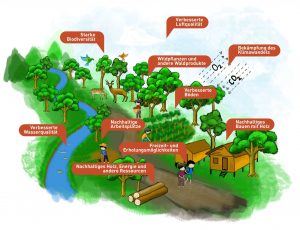
Traditionally, small farmers in Central Kalimantan have mainly practiced set-aside agriculture for the cultivation of dry rice, supplemented by hunting and wild plant collection and small forest gardens. Due to the deforestation of the rain forest with the consequence of the leaching of the humus with the necessary nutrients and a constant population growth, this burnt-down agriculture is no longer sustainable and is now also illegal. However, it was tolerated until recently. However, since the huge forest fires of 2015, the Indonesian government has stepped up action against arson.
The possibilities for small farmers to produce food in subsistence farming are severely limited. Alternatives are above all the low-profit tapping of rubber juice and illegal activities such as gold panning and logging. There are no sustainable, legal sources of income, with the exception of small trade and employment with local authorities. From this situation came the idea of supporting the farmers to use new cultivation practices and to improve the degraded soils by cultivating suitable plant combinations and natural fertilization. In the previous project, the use of compost and biochar was tested and evidence was provided that severely degraded areas can also be used for agriculture.
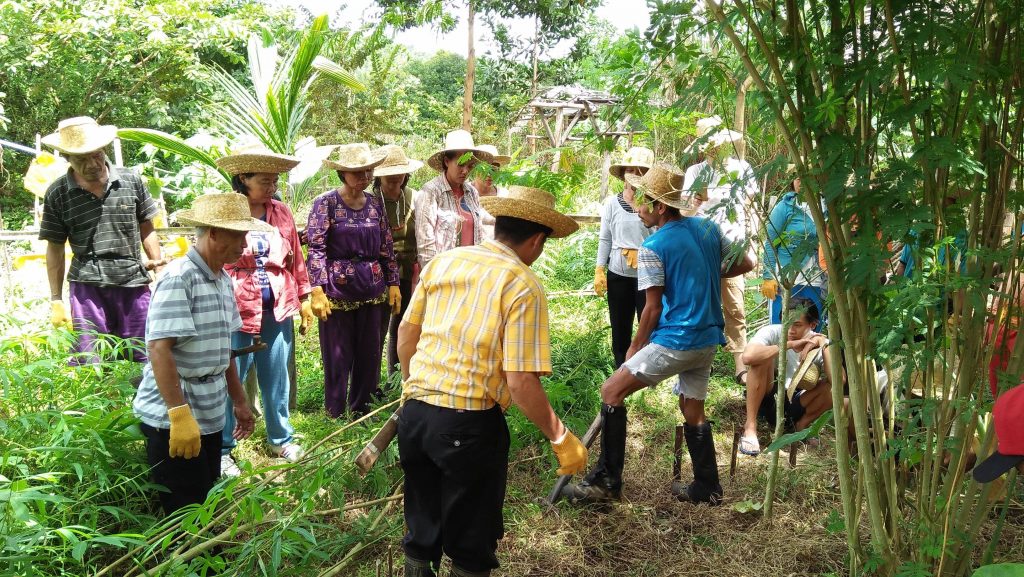
The target group are small farmers and their families living in 3 districts in Gunung Mas County in Central Kalimantan. The vast majority of farmers belong to the Dayak indigenous people. They live primarily from subsistence farming and usually only have a small and irregular income from the sale of rubber juice or illegally felled wood. Buying food consumes a large part of disposable income and there is often little money for health and education and, due to the distance from the provincial capital, access to other services. The farmers are organized in informal groups in their villages, there are no formal structures. The target group contributes to the project through the implementation of all work on the fields.
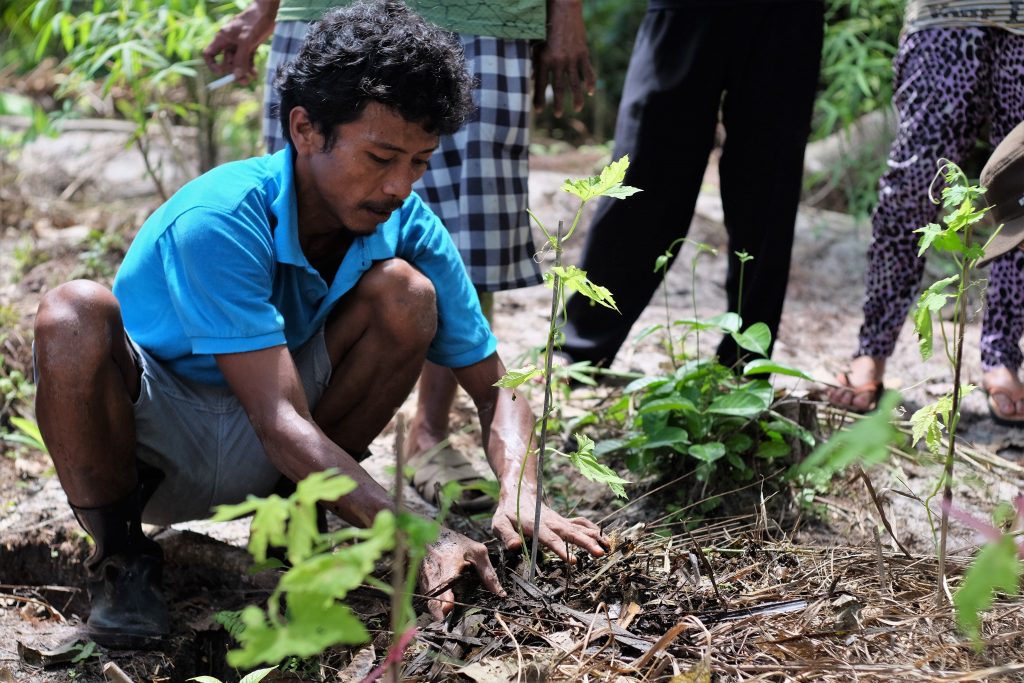
The small farmers have little knowledge of sustainable agricultural techniques and the land they have at their disposal is often severely degraded.
Activities to improve soil fertility and the economic livelihoods of smallholders are already being implemented in the project region. The farmers have a need and are interested in new, sustainable cultivation options for fruit and vegetables, both for self-sufficiency and to be able to sell surpluses on the market.
The Borneo Institute (BIT) was founded in 2004 by committed local people in Palangka Raya and has since developed into a non-profit, professionally working registered foundation (Yayasan). The purpose of the foundation is to promote sustainable village development on site and at the same time to preserve the culture. The BIT is very well networked locally, both in the communities and with authorities, companies and training companies. The BIT has already implemented several projects, primarily in the areas of agriculture, forestry and land rights, which were financed both locally and by international donors. The BIT is very active in the region and will continue to be a contact and work in the region even after the end of the project.
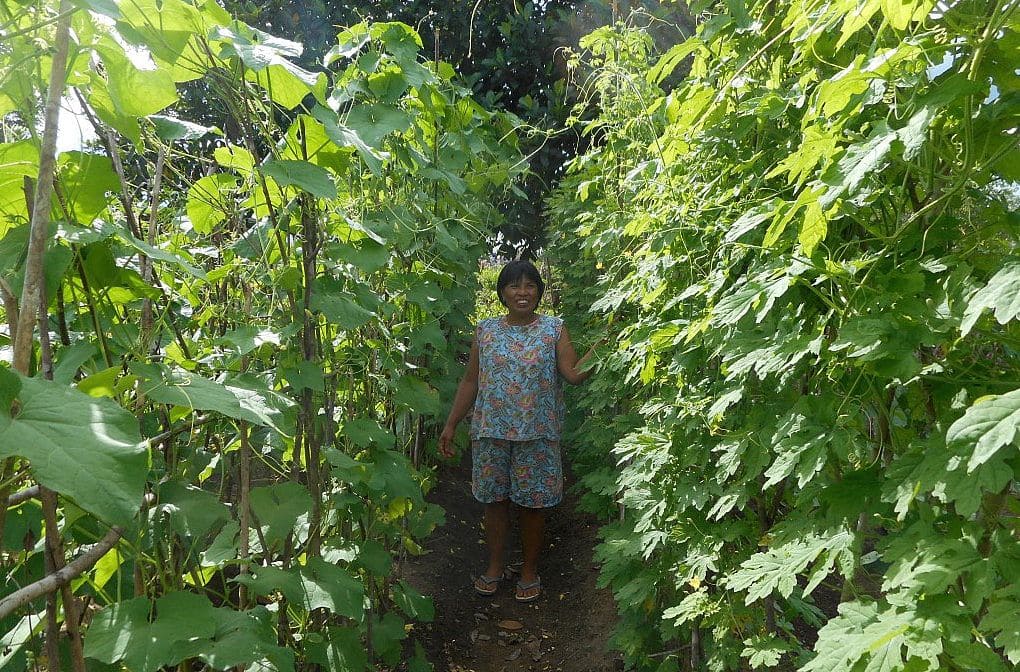
Project sponsor: Fairventures Worldwide FVW gGmbH
Funding year: since 2016
Project number: 63-16si

